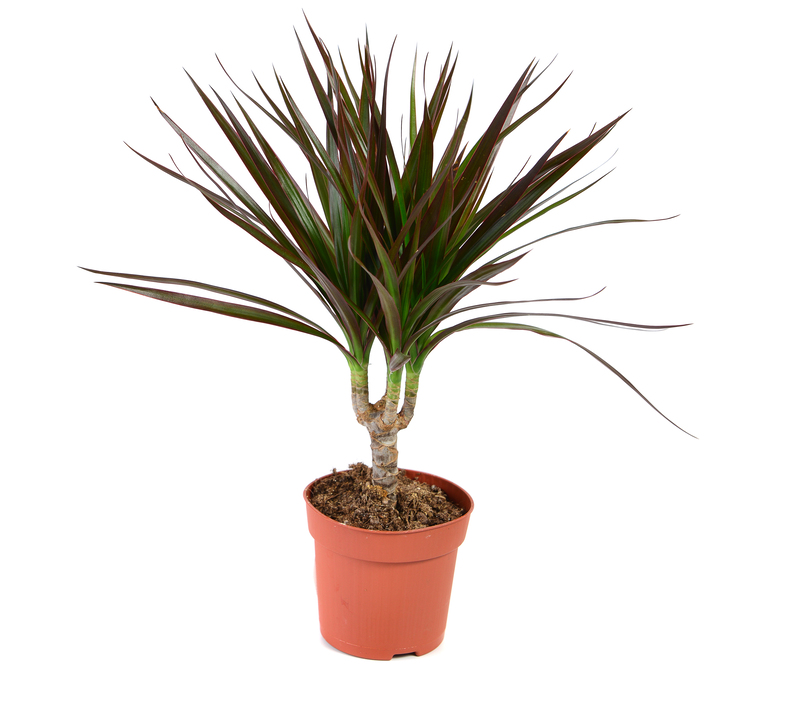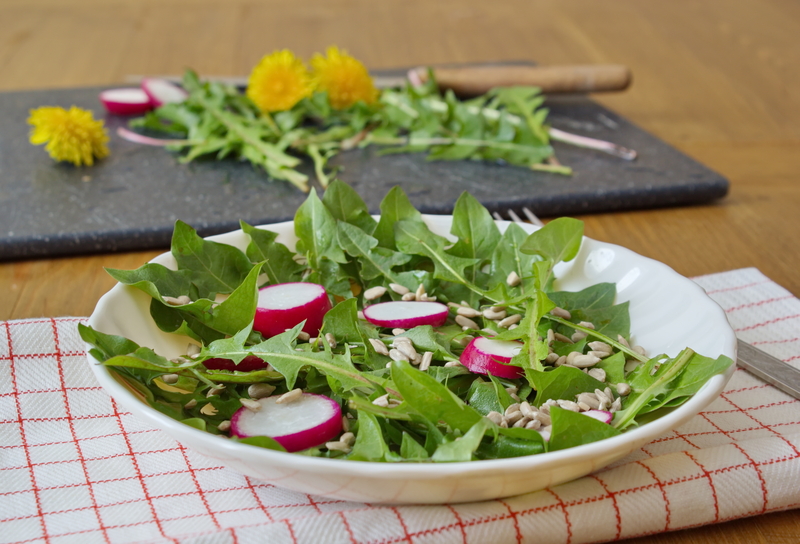Breaking Ground: How to Begin Your Herb Garden Adventure
Posted on 03/09/2025
Breaking Ground: How to Begin Your Herb Garden Adventure
Fresh herbs delight the senses, elevate homemade meals, and infuse your surroundings with color and aroma. Starting your own herb garden might sound daunting, but with proper guidance, it's a rewarding journey even for beginners. In this comprehensive, SEO-optimized guide, we'll explore the steps and tips necessary for a successful herb gardening adventure--whether you have sprawling outdoor space or a cozy kitchen windowsill.

Why Start an Herb Garden?
Herb gardens aren't just about adding flavor to your dishes. They also offer health benefits, reduce grocery bills, and introduce a therapeutic activity to your daily routine. Growing herbs at home ensures a fresh, chemical-free supply right at your fingertips. Moreover, the process of tending to your plants can foster mindfulness and relaxation.
Top Benefits of an Herb Garden Adventure
- Freshness on Demand: Pick what you need when you need it.
- Economic Savings: Save money versus buying fresh herbs at the store.
- Sustainable Choice: Reduce packaging and transportation footprint.
- Healthier Meals: Fresh-cut herbs retain more nutrients and aromas.
- Decor & Aromatherapy: Herbs add greenery and lovely scents to any space.
- Beginner-Friendly: Many herbs are among the easiest plants to grow at home.
Herb Garden Adventure: Where to Start?
The first step in your herb gardening journey is planning. Whether you dream of a windowsill herb garden or a dedicated outdoor patch, understanding your options is key.
Finding the Right Location for Your Herb Garden
Herbs need sunlight, water, and well-drained soil. Your available space--indoors or outdoors--will influence your setup. Here's how to decide:
Indoor Herb Garden Adventure
- Adequate sunlight: Herbs like basil, thyme, and chives thrive in 4-6 hours of direct sunshine. A south- or west-facing window is ideal.
- Good drainage: Use containers with drainage holes to prevent root rot.
- Controlled climate: Indoor gardens avoid frost and pests, extending the growing season.
Tip: If sunlight is limited, consider supplemental LED grow lights. Herbs adapt well to indoor conditions when given the proper care.
Outdoor Herb Gardening for Beginners
- Sun exposure: Most herbs need at least 6 hours of direct sunlight outdoors.
- Well-drained soil: Avoid waterlogged spots. Raised beds or containers help manage drainage.
- Proximity: Plant herbs close to your kitchen for easy harvesting.
Selecting Herbs for Your First Garden
Not all herbs are created equal. Some are easier to grow, while others need specific conditions. Choosing beginner-friendly herbs will foster early success and confidence.
Best Herbs for Beginners
- Basil: Vibrant and fast-growing, perfect for salads, sauces, and pestos.
- Parsley: Resilient and versatile, garnishes everything from soups to main dishes.
- Mint: Vigorous and aromatic, but best kept in its own container to prevent spreading.
- Chives: Low-maintenance, great for salads, eggs, and dips.
- Thyme: Hardy and drought-tolerant, ideal for roasting and stews.
- Cilantro: Quick-growing, delicious in salsas and curries.
- Rosemary: Woodsy flavor and fragrant foliage, doubles as a decorative shrub.
Select 3-5 herbs you use most often in your kitchen to start your herb garden adventure.
Considerations for a Successful Herb Selection
- Culinary preferences: Grow what you love.
- Climate: Some herbs like basil and cilantro are annuals, while rosemary and thyme can be perennial in milder climates.
- Growth habits: Spreading herbs (like mint and oregano) need containment.
Planting Your First Herb Garden: Step-by-Step
1. Gather Supplies
Essentials include:
- Quality potting mix or garden soil (well-draining is crucial)
- Pots with drainage holes, window boxes, or a garden bed
- Herb seeds or starter plants
- Labels for plant identification
- Watering can or spray bottle
- Small hand trowel and gloves
2. Prepare Your Containers or Bed
- Clean containers thoroughly to prevent disease.
- Ensure adequate drainage; add gravel or broken pottery shards if needed.
- Fill with a potting mix enriched with compost for nutrients.
3. Plant Your Herbs
- From seed: Sow seeds at recommended depth, gently cover, and moisten soil.
- From starts/transplants: Dig a hole slightly bigger than the root ball. Place the plant, backfill, and gently tamp soil.
Water thoroughly, but avoid soaking. Keep the soil moist but not soggy during the initial weeks.
4. Placement and Spacing
- Group herbs with similar sunlight and water needs together.
- Allow for airflow--avoid overcrowding. Refer to seed packets for spacing guidelines.
5. Initial Care for Your Herb Garden
- Sunlight: Monitor light exposure daily.
- Water: Check soil moisture regularly--herbs don't like wet feet.
- Feeding: Use diluted organic fertilizer every 3-4 weeks.
Ongoing Herb Garden Maintenance
Watering Tips
- Check the soil with your finger--water when the top inch is dry.
- Morning watering reduces evaporation and mildew risk.
Pruning and Harvesting
- Pinch back often to encourage bushier growth and prevent flowering.
- Harvest up to one-third of the plant at a time--never remove all leaves.
- Use sharp, clean scissors to snip stems above a pair of leaves.
Managing Pests and Diseases
- Inspect plants weekly for pests like aphids or spider mites.
- Use insecticidal soap or remove pests by hand.
- Promote airflow to prevent fungal diseases.
Winter Care for Your Herb Garden
- Bring containers indoors before the first frost.
- Some perennials (like rosemary and thyme) can survive outdoors in mild climates with mulch.
- Trim herbs lightly before moving, and reduce watering indoors in winter.
Creative Ideas for Your Herb Garden Adventure
Container Herb Gardens
- Use colorful pots, hanging planters, or repurposed items like tea tins and mugs.
- Try vertical gardening with wall-mounted containers for small spaces.
- Group herbs with similar needs--parsley, basil, and cilantro (love moisture); thyme, oregano, and rosemary (prefer drier conditions).
Outdoor Herb Spiral
- Construct a raised spiral of rocks or bricks. Plant dry-loving herbs at the top, moisture lovers at the base.
- Add flowers like nasturtium or marigold for extra color and pollinator appeal.
Kitchens and Windowsills
- Group 3-5 small pots in a tray by a sunny window.
- Opt for compact herbs: Chives, mint, oregano, and parsley grow well indoors.
- Rotate pots weekly for even growth.
Community Herb Gardens and Sharing
- Join local garden clubs or co-ops to exchange seeds, cuttings, and tips.
- Share excess herbs with neighbors--fresh or dried bundles make thoughtful gifts.
Common Challenges & Solutions in Herb Gardening
No journey is without bumps. Here's how to overcome the most frequent herb gardening hurdles:
Herb Seeds Not Germinating
- Ensure correct soil temperature--herbs like basil need warmth to sprout.
- Keep soil moist but not soaked until sprouting occurs.
- Consider starting seeds indoors, then transplanting once established.
Leggy or Weak Plants
- Increase sunlight--move to the brightest spot, or add grow lights.
- Pinch back tips to encourage bushier growth.
Pests on Your Herbs
- Regularly inspect leaves (top and bottom) for insects.
- Wanted: Ladybugs to naturally combat aphids!
- Try organic remedies: neem oil, soap spray, or simply rinse with water.

Harvesting and Using Your Herbal Bounty
Once your garden is thriving, you'll enjoy picking fresh herbs for culinary, medicinal, and decorative purposes.
When and How to Harvest
- Harvest in the morning when oils are most concentrated.
- Regular picking promotes fresh new growth.
- For perennial herbs, avoid cutting back more than one-third of the plant at a time.
How to Store Fresh and Dried Herbs
- Fresh: Place stems in a glass of water (like a bouquet) for up to a week, or wrap in damp paper towels and refrigerate.
- Dried: Hang small bunches upside-down in a dry, dark place. Once dry, store in airtight jars for up to a year.
- Frozen: Chop herbs and freeze in ice cube trays with olive oil or water for easy use in recipes.
Inspirational Ways to Use Homegrown Herbs
- Infuse oils and vinegar for dressings or marinades.
- Create fresh herbal teas (mint, lemon balm, chamomile).
- Craft natural cleaning sprays with rosemary and thyme.
- Make gifts: lavender sachets, herbal bath soaks, or dried bundles.
The Next Steps in Your Herb Garden Journey
Herb gardening isn't just a hobby--it's a lifestyle change that enriches your meals, your home, and your well-being. As you grow in your herb gardening adventure, consider expanding your plant selection, experimenting with new varieties, and sharing the joy with others. Document your progress in a garden journal or on social media to inspire fellow gardeners.
Remember: Every gardener--beginner or seasoned--faces challenges and successes. With patience, observation, and regular care, your herb garden will flourish, providing you with beauty, flavor, and satisfaction for years to come.
Now that you know how to begin your own herb garden adventure, it's time to break ground--one pot, patch, or windowsill at a time. Happy growing!
Latest Posts
Merging Style and Function in Your Garden Seating Setup
Bountiful Backyards: Gardening as a Climate Solution
Harness Nature's Speed with 9 Fast-Progressing Privacy Hedges

